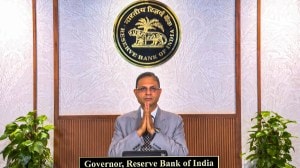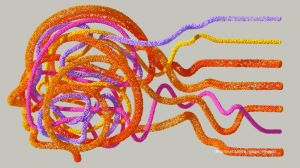Moment of pride… world’s largest health cover finally rolled out in Delhi: Nadda on Ayushman Bharat Scheme MoU
With this, Delhi is 35th on the list of states or union territories implementing the Ayushman Bharat Pradhan Mantri Jan Arogya Yojana.
 Addressing the event where the MoU was signed, Nadda said his party implemented the scheme within 43 days of government formation in Delhi. (Express Photo)
Addressing the event where the MoU was signed, Nadda said his party implemented the scheme within 43 days of government formation in Delhi. (Express Photo)Thirty-six lakh eligible citizens in the Capital are set to benefit from the rollout of the Ayushman Bharat Pradhan Mantri Jan Arogya Yojana (AB-PMJAY), Union Health Minister J P Nadda said Saturday as the Delhi government signed a Memorandum of Understanding (MoU) with the Centre to implement the scheme in the city. The distribution of Ayushman Bharat cards will begin on April 10, Chief Minister Rekha Gupta said, adding that 2.35 lakh families will be covered in the first phase of the rollout.
“With around 30 lakh people belonging to 6.54 lakh families and an estimated 6 lakh senior citizens, about 36 lakh people in Delhi will benefit from the AB-PMJAY scheme,” said Nadda while addressing an event to mark the signing of the MoU between the National Health Authority (NHA) of the Union Ministry of Health and Family Welfare and the Department of Health & Family Welfare, Government of NCT, Delhi. The NHA is the apex body responsible for implementation of the scheme.
“It is a moment of pride that the world’s largest health coverage scheme, which has been in place across 34 states and union territories in the country, is finally being implemented in the national capital,” said Nadda. Also at the event were CM Gupta, Delhi Health Minister Dr Pankaj Kumar Singh and senior BJP leaders.
Emphasising that the BJP implemented the scheme within 43 days of government formation in Delhi, Nadda said, “(Former CM) Arvind Kejriwal was playing with the health of the people of Delhi. It is the result of wrong decisions that he is sitting at home.”
The implementation of the national health scheme in the Capital was among the BJP’s key poll promises in the run-up to the Assembly elections.
CM Gupta also slammed the previous AAP government. “This scheme, which is a lifeline for Delhiites, could not be implemented (till now) due to the conspiracy of the previous government. Delhi was an example of how citizens suffer when central and state governments do not work in tandem towards the same goal,” she said.
Now, West Bengal is the only state that has not implemented the Central scheme.
Eligible families in Delhi will receive an annual health coverage of up to Rs 10 lakh — Rs 5 lakh from the Centre and a top-up of the same amount from the Delhi government. The scheme provides free and cashless treatment for 1,961 medical procedures across 27 specialities, covering the costs of medicines, diagnostic services, hospitalisation, ICU care, and surgeries, among other related expenses.
It covers up to three days of pre-hospitalisation and 15 days of post-hospitalisation expenses such as diagnostics and medicines. There is no restriction on the family size, age or gender and all pre-existing conditions are covered from day one.
Beneficiaries, said officials, will be identified based on the Socio-Economic and Caste Census data of 2011. “Beneficiaries will also be ascertained through ration cards made under the National Food Security Act,” said an official.
Across the Capital, 46 private hospitals and 34 government hospitals, which were earlier providing the Ayushman Bharat service through the NHA, have been empanelled with health authorities concerned in the city.
Insisting that AB-PMJAY is not an insurance scheme but an ‘assurance’ scheme built on trust, Nadda added, “AB-PMJAY is the first scheme to bring 50 crore people under its ambit based on economic caste census.”
Nadda said 36 lakh frontline health workers, including ASHA and anganwadi workers, were brought under this scheme and Pradhan Mantri Jeevan Bima Yojana to cover health and life insurance. For beneficiaries, out-of-pocket expenditure has declined from 62% in 2014 to 38% today owing to AB-PMJAY, he said.
“Patients enrolled under AB-PMJAY saw 90% rise in access to cancer treatment within 30 days,” he added.












